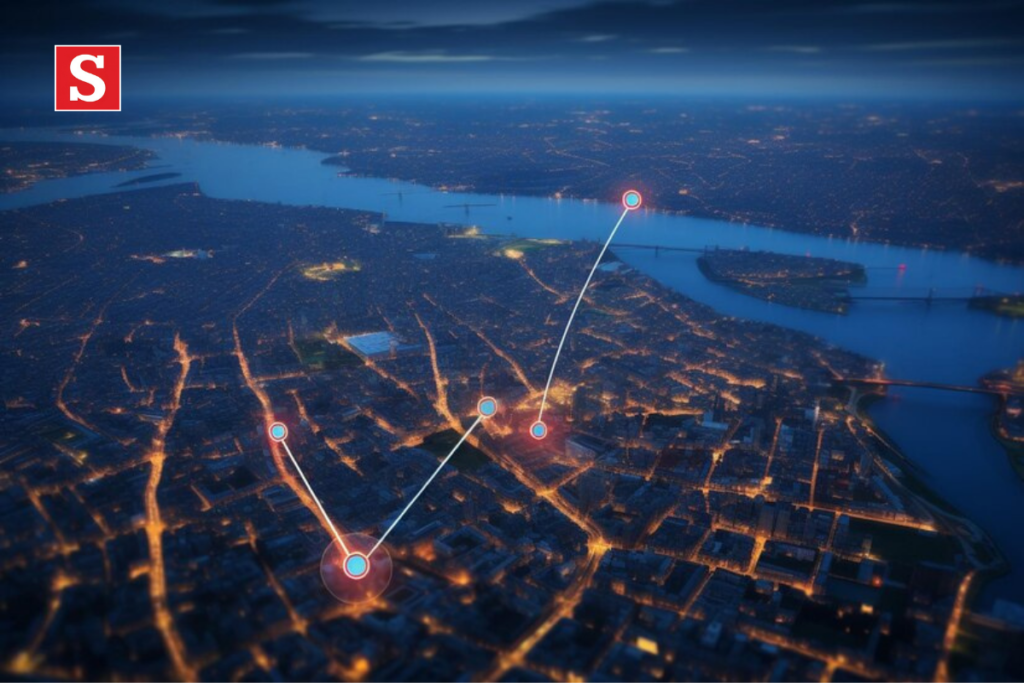In today’s competitive business landscape, understanding customer behavior, optimizing logistics, and improving operational efficiency are essential for maximizing profitability. One of the most powerful tools at a company’s disposal is geolocation intelligence—a data-driven approach that leverages location-based insights to inform strategic decisions. When the bottom line is on the line, businesses can’t afford to ignore the value of geolocation intelligence.
What is Geolocation Intelligence?
Geolocation intelligence is the process of collecting, analyzing, and utilizing geographic and spatial data to make informed business decisions. It goes beyond simple GPS tracking and integrates multiple data sources, such as demographic trends, consumer movement patterns, and real-time analytics, to create actionable insights.
Businesses across various industries, from retail and real estate to logistics and workforce management, rely on geolocation intelligence to enhance efficiency, reduce costs, and improve customer experiences.
How Geolocation Intelligence Impacts the Bottom Line
1. Optimizing Business Operations
One of the primary ways companies improve their bottom line is by streamlining operations. Geolocation intelligence enables businesses to identify inefficiencies in supply chain logistics, optimize delivery routes, and reduce fuel consumption. This is particularly beneficial for e-commerce and logistics companies that rely on timely deliveries and cost-efficient distribution networks.
For example, by leveraging real-time tracking data, fleet managers can dynamically adjust routes based on traffic conditions, road closures, or weather disruptions. This reduces delivery times, minimizes fuel costs, and improves overall operational efficiency.
2. Enhancing Customer Insights and Personalization
Understanding where customers live, work, and shop allows businesses to tailor marketing efforts effectively. Retailers use geolocation intelligence to analyze foot traffic patterns, determine the best store locations, and personalize advertising campaigns. By delivering targeted promotions based on a consumer’s location and behavior, companies can increase conversion rates and customer engagement.
A report by Forbes Insights highlights how companies use location intelligence to make sense of vast amounts of data and drive revenue growth.
3. Gaining a Competitive Advantage
In highly competitive markets, businesses that leverage geolocation intelligence gain an edge over their rivals. By analyzing competitor locations, market trends, and regional demand, companies can make informed expansion decisions. Whether a retail chain is considering a new store location or a restaurant is evaluating potential franchise opportunities, geolocation insights provide a data-backed approach to growth.
A study by Buxton emphasizes how location analytics have become a secret weapon for businesses striving to outpace competitors.
4. Improving Workforce Efficiency
Beyond customer insights, geolocation intelligence also plays a vital role in workforce management. Companies with mobile employees, such as field service technicians, sales representatives, or delivery personnel, benefit from real-time location tracking to monitor productivity and ensure safety.
With solutions like real-time location tracking, employers can manage remote teams more effectively, verify work hours, and enhance accountability, ultimately reducing operational costs and boosting profitability.
Industries Benefiting from Geolocation Intelligence
Retail and E-Commerce
Retailers use geolocation data to optimize store locations, manage inventory based on regional demand, and enhance customer experiences with location-based promotions.
Logistics and Transportation
Fleet management companies leverage location intelligence to optimize delivery routes, reduce fuel consumption, and improve delivery times.
Real Estate
Real estate developers analyze demographic trends and neighborhood growth to identify high-value investment opportunities.
Healthcare
Hospitals and emergency services use geolocation data for efficient ambulance dispatch and to track the spread of diseases.
Marketing and Advertising
Brands use location intelligence for hyper-targeted advertising, ensuring that marketing efforts reach the right audience at the right time.
Conclusion
In a world where data-driven decision-making is critical to business success, geolocation intelligence has emerged as a powerful tool for improving profitability. From optimizing logistics and enhancing customer experiences to gaining a competitive edge and improving workforce efficiency, the applications of geolocation intelligence are vast.




